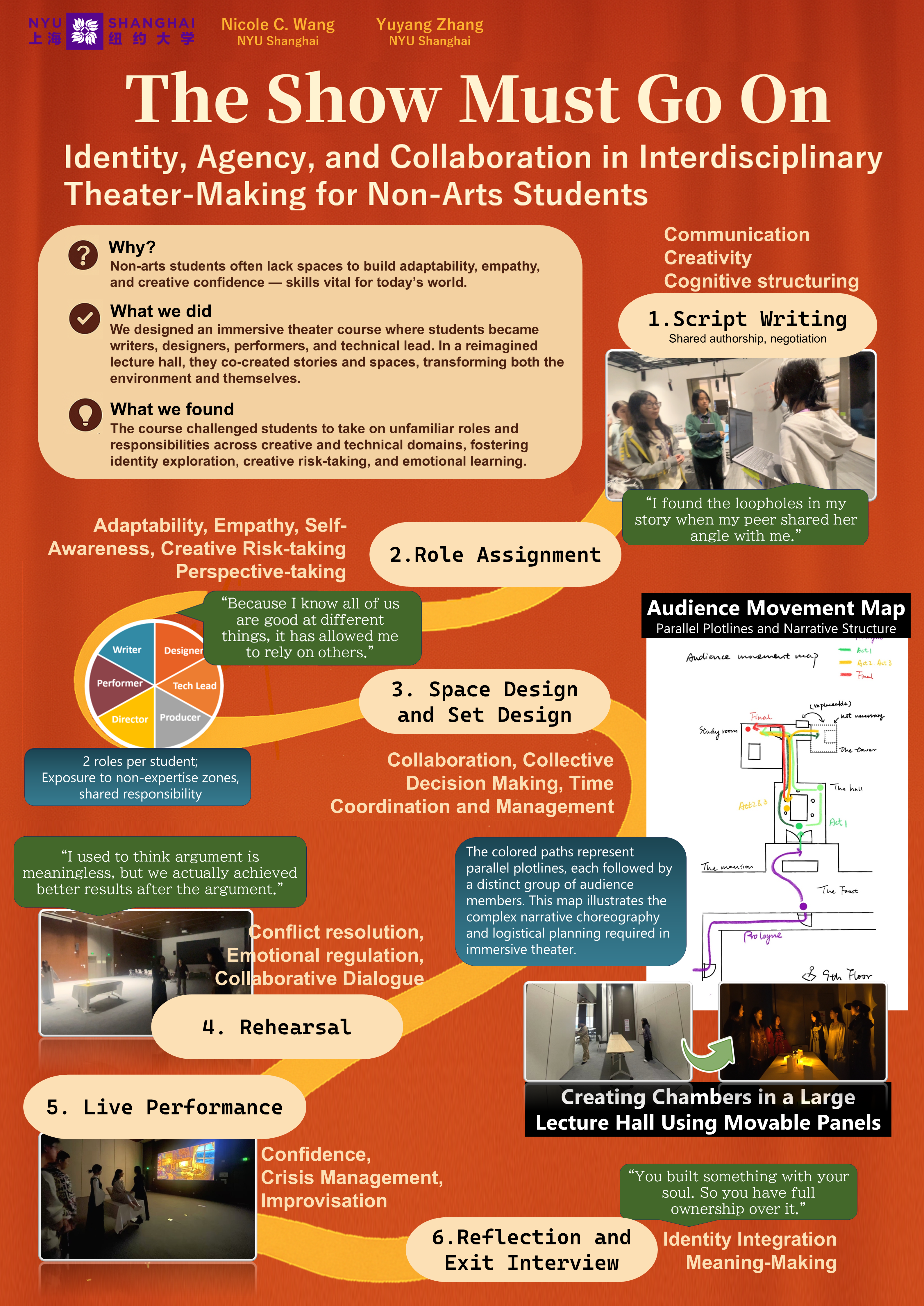Three-Phase Approach to Integrating AI into a Branding Course
Abstract
In an age where adaptability, creativity, and emotional intelligence are increasingly vital, non-arts students often have limited access to environments that foster these skills, including but not limited to creative thinking, negotiation, conflict management, empathy, self-management and relationship skills. More importantly, the lack of interdisciplinary opportunities in higher education reinforces rigid academic identities, which in turn constrain students’ self-perception and limit their openness to explore roles, skills, and ways of thinking beyond their chosen majors.
To address these issues, this course introduces a novel pedagogical model: an immersive theater course offered to non-arts students and staged in a reimagined, underutilized university space. Students took on multiple collaborative roles—including writer, designer, performer, and technical lead—sharing responsibility for script development, character creation, staging, audience engagement, and prop construction. Through collaborative dialogue and reflective exit interviews, we observed early signs of increased agency, intrinsic motivation, and identity expansion.
This paper is still work in progress.
Related Works & Links
Presented as a poster at International Symposium of Academic Makerspaces '25 in Berkeley, CA
Course Website and Student Works: “Experience Studio: Theater Collaboration”
Archived course agenda and student works including show clips and design prototypes
